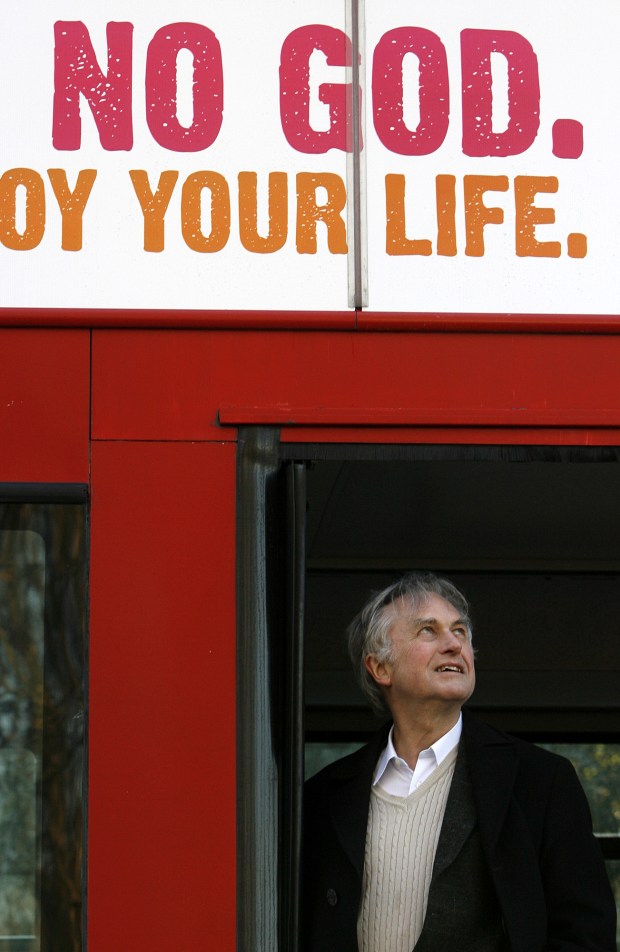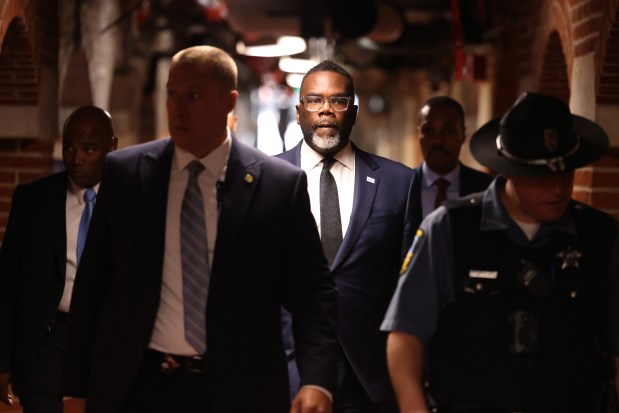It wasn’t quite a “where were you when” moment, but almost. I’m talking about Richard Dawkins — the world’s most famous atheist — announcing that he’d become a “cultural Christian.”
Initially I was confused. Dawkins a Christian? Then I realized what he was saying. The Oxford professor wasn’t embracing faith; he was joining the parade of secular people acknowledging that much of what’s right about the West depends upon a flourishing church.
If his pivot surprises you, you need to understand three things.
Secularism is stumbling. The secular mindset that emerged from the Enlightenment — the belief that religion would fade while science delivered heaven on earth — has failed. Though most love Novocain, iPhones and DoorDash sushi, in the end, it’s not enough. There are aspects of secularism we should all applaud, but people who are defined by it are disproportionately lonely, anxious and unhappy. More significantly, they’re not having children at anything near the replacement rate.
Secularism is holding its own in Ivy League faculty lounges, but if it were a stock, Warren Buffett would have sold it 36 months ago.
Faith is surviving. A recently released study from the Pew Research Center shows that while church and synagogue attendance is down, the decline is mostly among those whose belief was thin. In fact, robust faith remains strong. Bible sales are up. Men are back in church. Catholics are opting for the Latin Mass, and public intellectual Jordan Peterson’s lectures now sound more like sermons than TED talks.
And Gen Z? Instead of following the “no gods, no masters” rhetoric of their millennial predecessors, they’re turning mystical, embracing stained glass and reading C.S. Lewis.
As author G.K. Chesterton noted, “On five occasions in history the church has gone to the dogs, but on each occasion, it was the dogs that died.”
The cut flower theory is back. In the early 1950s, sociologist Will Herberg argued that just as a bouquet of flowers wilts because the flowers have been cut from their roots, societies that drift from their moral foundations also fade.
Founding Father John Adams said as much in 1798 when he wrote, “Our Constitution was made only for a moral and religious people. It is wholly inadequate to the government of any other.” And Friedrich Nietzsche — the “God is dead” 19th century philosopher — scoffed at those expecting a faithless 20th century to be a kumbaya festival.
Of course, those insights were only embraced by people paying attention, and many Americans have been too busy watching Netflix. We deserve our reputation for knowing a lot about the last five minutes but not much about the last 50 years, to say nothing about the last 500.
But Dawkins’ about-face is part of a trend of people replacing the “people will be good without God” belief with the cut flower theory. Recently, Jonathan Rauch, a self-described liberal atheist, called his 2003 Atlantic piece celebrating religion’s fade “the dumbest thing I ever wrote.” And in his recently released book “Cross Purposes,” he argues that virtues and values without religious conviction are not holding up.
What does this mean? For starters, it means political scientist Francis Fukuyama’s claim that history ended when the Berlin Wall fell, is out. And political scientist Samuel Huntington’s claim that we’re headed toward a clash between the West and fundamentalist Islam is in. Secondly, it means much depends on the church doing a better job following Christ’s teaching and example. And thirdly, it means some surprising people are reconsidering faith.
To be clear, Dawkins is not one of them. He now sees pastors like me as “useful” but only as in “useful idiots.” However, he’s not the story. It’s not just that the new atheism he championed has collapsed; it’s that some of his lieutenants are now faith-friendly if not faith-ful. Douglas Murray — the snarky British atheist — now agrees with Rauch and Peterson that healthy faith is a must-have for a healthy society. Historian Tom Holland and feminist Louise Perry are giving church another try. And Ayaan Hirsi Ali, the Dutch pol-turned-American activist; Niall Ferguson, a distinguished British academic; and Irish poet and activist Paul Kingsnorth all recently announced they’d been baptized.
None of this means secularism is disappearing. There will always be some who believe that with more education and the next whiz-bang advancement, human nature will right itself. And there will also be those who are very religious about their atheism.
But something is afoot. The Dawkins of 10 years ago wasn’t calling Christianity a “fundamentally decent religion.” He was saying it was as deadly as smallpox and harder to eradicate. The tectonic plates appear to be shifting.
Of course, that’s just one useful idiot’s opinion.
Mike Woodruff is the lead pastor at Christ Church, which has four campuses in the north suburbs. His weekly newsletter is available at thefridayupdate.org.
Submit a letter, of no more than 400 words, to the editor here or email letters@chicagotribune.com.




